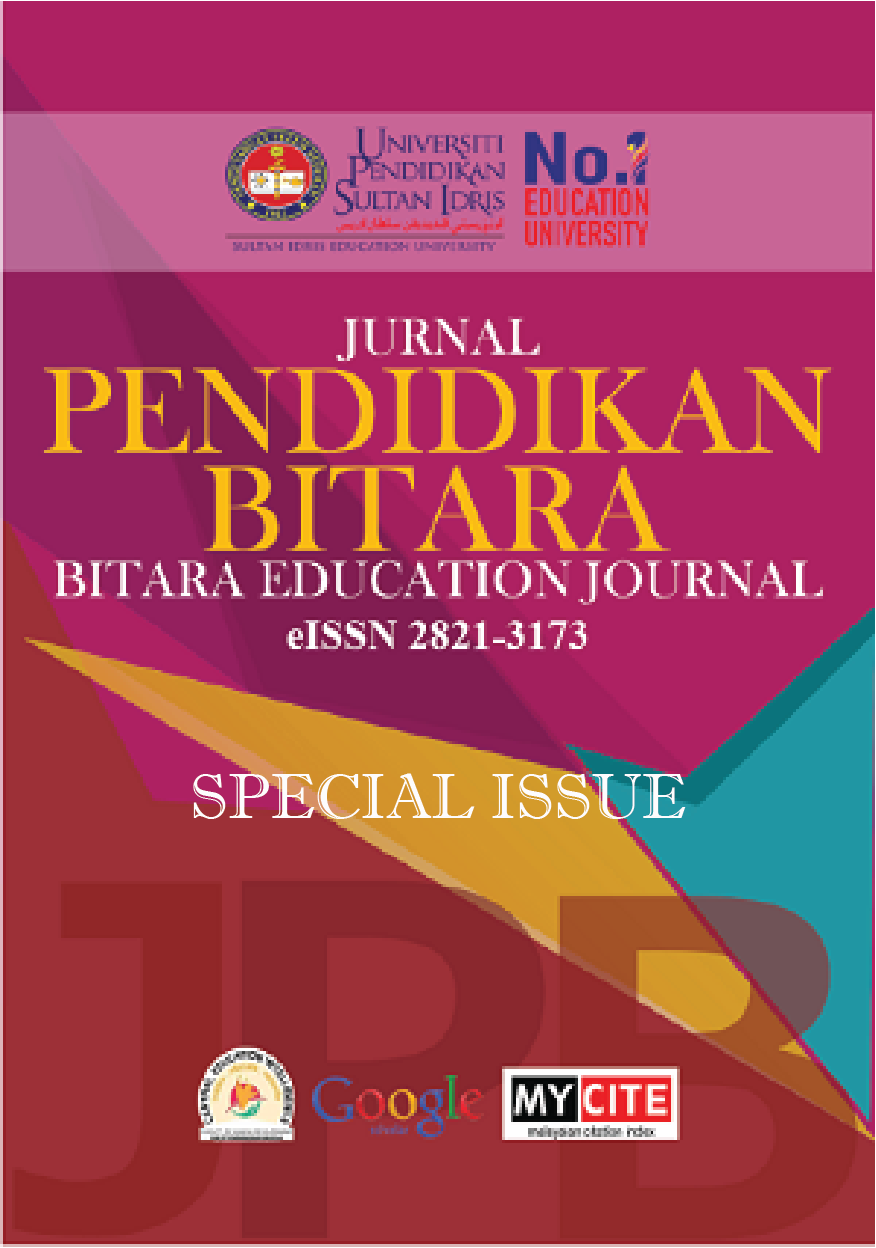Effects of Career Planning Education on Career Readiness Among Undergraduates Based on Social Learning Theory
DOI:
https://doi.org/10.37134/bitara.vol16.sp2.9.2023Keywords:
Career Planning Education, Career Readiness, Social Learning TheoryAbstract
This paper aims to enhance undergraduates' career readiness through the implementation of career planning education strategies on social learning theory. As the modern workforce becomes increasingly dynamic, it is crucial for students to develop the necessary career readiness to navigate their career paths effectively. This paper explores the contents of career planning education in fostering career readiness, contributing to the ongoing discourse on best practices in career development. Guided by social learning theory, the paper explores how to improve students' career readiness through career planning education. The paper emphasizes the value of developing career planning education base on social learning theory and suggests practical strategies for designing and implementing effective programs. Ultimately, this research proposes career planning education strategies based on social learning theory as a means to enhance undergraduates’ career readiness, bridging the gap between graduates and employers’ expectations and fostering a successful transition from school to work.
Downloads
References
Al-Waqfi, M. A., Tlaiss, H., & Ghoudi, K. (2023). Career Adaptability as a Predictor of Job Search Intentions and Career Readiness of Young Adults in the United Arab Emirates. Journal of Career Development, 08948453231157759.
Bandura, A. (1982). Self-efficacy mechanism in human agency. American psychologist, 37(2), 122.
Chen, S., Chen, H., Ling, H., & Gu, X. (2022). An online career intervention for promoting Chinese high school students’ career readiness. Frontiers in Psychology, 12, 815076.
Chuang, S. (2021). The applications of constructivist learning theory and social learning theory on adult continuous development. Performance Improvement, 60(3), 6-14.
Daniels, J., & Brooker, J. (2014). Student identity development in higher education: Implications for graduate attributes and work-readiness. Educational research, 56(1), 65-76.
Han, Y. (2022). A Career Guidance and Career Planning Assessment Method Based on Improved Correlation Analysis. Security and Communication Networks, 2022.
Hou D.W. (2018). A Study on Quality of the Initial Employment for University Graduates Based on Employment Preparation (Doctoral dissertation, China University of Mining and Technology).
Jin S. R. (2007). Career counseling and coaching. Higher Education Press.
Krumboltz, J. D. (2009). The happenstance learning theory. Journal of career assessment, 17(2), 135-154.
Lairio, M. and Penttinen, L. (2006) “Students’ career concerns: Challenges facing guidance providers in Higher Education,” International Journal for Educational and Vocational Guidance, 6(3), pp. 143–157.
Liang Y.J., Liu D.P. & Liang Y. (2020). Investigation on Employment Intention of College Students and Analysis of Precision Employment Guidance—A Case study of Graduates of Beijing Jiaotong University in 2021. China University Students Career Guide (19):49-54.
Lu S.C., & Qin Z.Y. (2021). Application of social learning theory to college students' career planning [J]. Journal of Jilin Engineering Normal University,37(2),19-21.
Mansor, A. T., & Tan, K. A. (2009). Influence of gender on career readiness among Malaysian undergraduates. Australian Journal of Career Development, 18(2), 33-44.
Moore, T., & Morton, J. (2017). The myth of job readiness? Written communication, employability, and the ‘skills gap’in higher education. Studies in Higher Education, 42(3), 591-609.
NACE (2022). What is career readiness? https://www.naceweb.org/career-readiness/competencies/career-readiness-defined/.
Osborn, D. S., & Belle, J. G. (2019). Preparing juvenile offenders for college and career readiness: A cognitive information processing approach. Journal of Educational and Psychological Consultation, 29(3), 283-313.
Peng, X. (2020). Study on the Innovation of College Career Planning Education From the Perspective of “Integration of Innovation & Entrepreneurship and Specialty Education”. Advances in Educational Technology and Psychology, 4(1), 141-148.
Stebleton, M. J., Kaler, L. S., Diamond, K. K., & Lee, C. (2020). Examining career readiness in a liberal arts undergraduate career planning course. Journal of employment counseling, 57(1), 14-26.
Xiao Y., & Huang Y.J. (2011). An empirical study on the relationship between college students' career readiness behavior and employment quality. Work &Study Abroad, 1.
Xu, H., Hou, Z. J., & Tracey, T. J. (2014). Relation of environmental and self-career exploration with career decision-making difficulties in Chinese students. Journal of Career Assessment, 22(4), 654-665.
Waldron-Kuhn, M. S. (2019). Student Perceptions about the Impact of Academic and Career Planning Programming on College and Career Readiness (Doctoral dissertation, Edgewood College).
Downloads
Published
Issue
Section
License
Copyright (c) 2023 Zhang Jingwen, Mansor Abu Talib, Wang Jiajian, Jia Cuiping, Sheng Xia

This work is licensed under a Creative Commons Attribution-NonCommercial-ShareAlike 4.0 International License.





